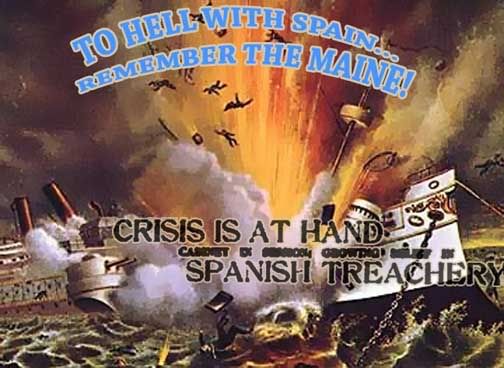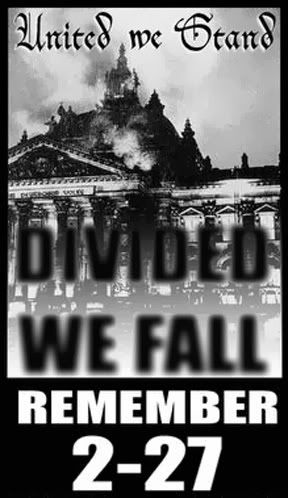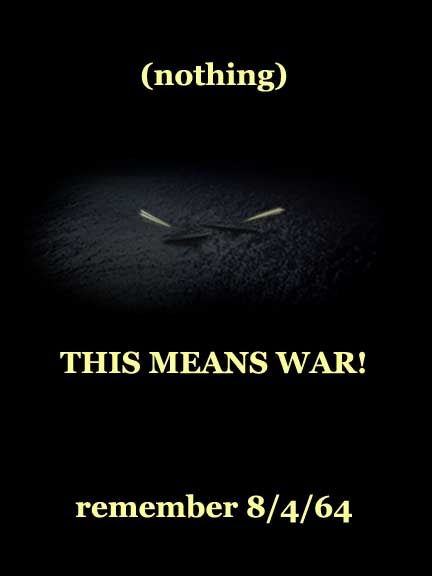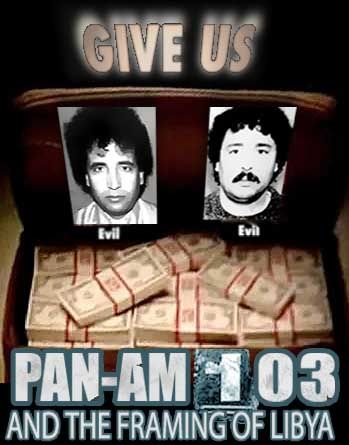Adam Larson / Caustic Logic
[False-Flagging Iraq series]
June 25 2009
incomplete
When two British Special Forces soldiers were arrested in Basra on September 19 2005, many questions were raised. Among the most important is the nature of the mission they were on that brought them into violent confrontation with their erstwhile allies, the local police, and in turn brought the local British forces smashing through the police and the local "lynch mob" to get them back, killing around a dozen Iraqis along the way. This had better be good...
We know the two men were (believed to be) part of the UK Army Special Air Service (SAS), an elite force famous for bold raids behind enemy lines and operating under the motto “Who Dares, Wins.” If so, what were they daring to do on this day? A Basra official, Mohammed al-Abadi, complained the soldiers “refused to say what their mission was and suggested that we ask their commander.” [1] To my knowledge, they never got an answer from above either. Different solutions to the riddle have been offered in the days afterwards, before the issue went into longtime hibernation mode. Below I’ll explore the four broad categories of theory.
1) False-Flagging Basra
The first category was the first we heard in detail - those peculiar locals saw the darkest version, that the SAS men were involved in false flag terrorism. Those with known grudges were the most vocal; Sheik Hassan al-Zarqani, a spokesman for rebel leader Moqtada al-Sadr, issued a press release saying “we believe these soldiers were planning an attack on a market or other civilian targets,” that this attack was to be a car-bombing, that they were “disguised as members of the Mehdi Army” (Sadr’s own group), and that the police refused to release the imposters since “they were considered to be planning terrorist attacks.” [2]
Many others far from the fray have concluded – or alluded to - the same; one critic called it “a clear instance of a foreign power attempting to fabricate a terrorist attack. Why else would the soldiers be dressed as Arabs if not to frame them? Why have a car laden with explosives if you don't plan to use them for destructive purposes?” [3] There are of course other reasons to dress like someone besides framing them, and other reasons – if few – for driving an explosive car. There’s no direct evidence I’m aware of for a booby-trapped car. There IS evidence of people stating this as fact, and for same people already believing the Coalition was behind the public bombings (this “previous reports confirm” or “prior-bias weakens” question will get its own post later).
There may have been a bomb as “reported” after all, with the evidence hushed-up afterwards, but I’m leaning the other way – the later lack of clues reveals the first reports were probably just opinionated propaganda. These reports being false doesn’t rule out some other planned provocation, which they were armed enough for, but absent a bomb there’s less reason to suspect such. Therefore, this case as I understand it does little to directly support the coalition false-flag theory.
2) Routine Intelligence Work
The UK Telegraph reported initially “the SAS men are thought to have been on a close observation patrol when they were stopped at a checkpoint.” The same piece explains how “soldiers have been told not to stop if challenged while working under-cover, as insurgents often masquerade as police officers.” [4] It would seem unlikely they were told to shoot while not stopping, although it seems that’s what they did. It makes perfect sense however that soldiers decked out as militants should not stop for possible militants disguised as police – especially since they’d already shot one of the real, militia-sympathizing Basra police officers.
Another paper, The Scotsman reported that “that the soldiers were part of an "undercover special forces detachment" in Basra to "bridge the intelligence void” and “gather human intelligence during counter-terrorist missions."” [5] One diplomat told the Guardian "We explained clearly to the authorities that they were British forces on a run-of-the mill observation mission." [6] Of course to observe out in the world It helps to blend in, hence the wigs and gauzy stuff; light-skinned as they were, Chechens might have been a good cover. Then they just panicked and started shooting at militia-police.
These are all boring missions that hardly seem worthy of such a cloak and dagger moment as 9/19. Sometimes however reality is just that – the boring choice. That hasn’t kept some from offering some enhanced versions…
3) Special Missions That Make Neat Political Points
Other sources narrow down the intelligence mission to Investigating a police-militia link, police corruption, torture, cat mutilations, and other such evils. The Herald: “Sources say the British soldiers […] were looking at infiltration of the city’s police by the followers of the outspoken Shi’ite cleric, Moqtada al Sadr.” [7] The Times, September 21: “The two soldiers are believed to have been investigating a corrupt police unit in Basra who were colluding with Shia militia leaders. Some of the men who later interrogated them are believed to be part of this same unit.” [8] Indeed, their mission proved spectacularly successful in flushing out such links, even though it seems to have gone terribly awry to do so.
In October, the Telegraph reported they finally “can reveal […] the real story,” which was that the soldiers were “spying on a senior police commander who was torturing prisoners with an electric drill.” That's certainly horrifying, and the paper described their mission as investigating “who was behind the reign of terror" at the very jail they wound up inside of. Brigadier John Lorimer, the man who oversaw the soldiers’ controversial rescue, told the paper the jail he ordered smashed down was a “very nasty place.” [9] A good way to find out what happens in the jail is to go inside it, but this was apparently not the plan, or else the costly rescue mission would not be called in to stop the process.
Another story with broader political implications and some detail to support it, was stopping roadside bombs coming in from Iran. The Sunday Times reported on the 25th, just four days after revealing their militia-police-corruption mission, that the soldiers were really “engaged in a “secret war” against insurgents bringing sophisticated bombs into the country from Iran.” [10] The deadly new bombs were made in a known Iranian style, meaning they must be from Iran. Therefore, “a 24-strong SAS team has been working out of Basra to provide a safety net to stop the bombers getting into the city from Iran,” said one source. “The aim is to identify routes used by insurgents and either capture or kill them.” [11] This system involved remote surveillance by human and electronic sensors along the routes into Basra. The Times graphic does show them headed towards the desert outside of town. “A source” also told the Times the pair was en route to another patrol to bring them “more tools and fire power” (which might explain their overabundance of weaponry) and to stop and do some surveillance, sort of along the way. [12]
Or perhaps their real mission, concealed by these more mundane stories, is the case made by the News Herlad Review on the 23rd that these “brave soldiers” were looking for the missing Weapons of Mass Destruction the war was first based on, and in the process:
“searching for clues of a suspected axis between Saddam Hussein’s regime, Al Qaeda in Iraq and elsewhere, corrupt police, Iranians, North Koreans, and Satan himself. Sources say the men were startlingly close to finding the missing link. when the devil’s minions closed in and took them to the local prison, which is believed to house one of the portals to Hell used to communicate master plans.” [13]
4) None of the Above
For my money, I’m going with “none of the above/undecided.” Of course any of the non-sinister mission types given above, could very well have caused the initial arrest situation, if natural mistrust and anxiety, perhaps some sloppiness, or simple bad luck enter the picture. However, given their hanging around police facilities and openness with firearms, it seems quite possible they were supposed to be arrested - like a dye marker injected into a system to gauge how it works.
My own hunch, or interesting hypothesis anyway, is that the mission these men were on was something involving competing interests, power and leverage, and an acutely uncertain level of trust. The trust of course failed badly however you slice it, which brings me to a point made by Micheal Keefer, writing for the Center for Research on Globalization:
"To remove these men from any danger of interrogation by their own supposed allies in the government the British are propping up […] tends, if anything, to support the view that this episode involved something much darker and more serious than a mere flare-up of bad tempers at a check-point." [14]Hardly anyone would disagree there was more to it than that; it’s the origins of the ominous intentions over which opinions differ. I’m seeing at least some darkness on both sides, if more acutely within the Basra police; in fact I feel queasy thinking of all the others passing through their hands without an armored division being sent to fetch them back. And that’s even without believing the drill torture stories.
The abuse allegations and other political points above – police-militia-Iran links - were also floated on this story’s current whether or not that was an original reason. In particular the charges of militia sympathies and cooperation were well-proven by the incident, as it was reported. Of course the strangely blatant murder of a militia-police-link-reporting journalist by militia-police-link-assassins the very same day sure didn’t help. [15] Who decided the timing on that? The earlier murder of militia-police-link-reporter Steven Vincent had already set the trend in August. [16] The British army’s later destruction in late 2006 of another Basra jail - by bombs – exposed torture and inhumane conditions inside, strengthening the narrative further. [17] But the case of 9/19 above all, involving such a stark contrast between “allies” as well as a man on fire, is what brought to a head in the British mind the hopeless depths of Basra’s wickedness and thence to the plans for withdrawal.
If those two guys being on some alleged psychological operation doesn’t seem to make sense, it’s worth asking if the normal rules really apply in this case. The original suspicions of bombing had the intent of retaining control through fake terror – Gladio in Mesopotamia. In the end what happened served brilliantly to tilt the scale towards the British relinquishing responsibility for the south of Iraq. And it may even have been intended that way. If you’re going to leave anyway, why not make a few points towards your myth of “why we gave up in Iraq” on your departure?
---
Sources:
[1, 4] Blomfield, Adrian and Thomas Harding “Troops free SAS men from jail.” The Telegraph. September 20 2005.
http://news.telegraph.co.uk/news/main.jhtml?xml=/news/2005/09/20/wirq20.xml
[2, 14] Keefer, Michael. "Were British Special Forces Soldiers Planting Bombs in Basra? Suspicions Strengthened by Earlier Reports." Center for Research on Globalization. September 25 2005. http://www.globalresearch.ca/index.php?context=va&aid=994
[3] Hutaff, Matt. “Fake Terrorism Is a Coalition's Best Friend.” The Simon. September 20 2005. www.thesimon.com/magazine/articles/canon_fodder/0961_fake_terrorism_coalition_best_friend.html
[5] Ahmed, Nafeez. “Caught red-handed: British Undercover Operatives in Iraq. Zarqawi, eat your heart out.” The Raw Story. September 23 2005. http://rawstory.com/news/2005/CAUGHT_RED__0923.html
[6] Mansour, Osama and Michael Howard. "Britain refuses apology and compensation for Iraqis caught up in Basra riots." The Guardian. September 26 2005. http://www.guardian.co.uk/world/2005/sep/26/military.iraq
[7] Nimmo, Kurt. “British “Pseudo-Gang” Terrorists Exposed in Basra.” Another Day in the Empire. September 20 2005. http://www.uruknet.info/?p=15936
[8] McGrory, Daniel. “Police station raid was diversion as SAS squad rescued comrades.” The Sunday Times. September 21 2005.
http://www.timesonline.co.uk/tol/news/world/iraq/article568898.ece
[9] Rayment, Sean. “Captured SAS men 'spying on drill torturer.'”The Telegraph. October 16 2005. http://www.telegraph.co.uk/news/uknews/1500740/Captured-SAS-men-spying-on-drill-torturer.html
[10, 11, 12] Smith, Michael and Ali Rifat. “SAS in secret war against Iranian agents.” The Sunday Times. September 25, 2005.
http://www.timesonline.co.uk/tol/news/uk/article570571.ece
[13] Don’t be silly; of course I made it up. But it does seem to fit the pattern, doesn’t it?
[15] Knickmeyer, Elen and Jonathan Finer. “British Smash Into Iraqi Jail To Free 2 Detained Soldiers.” Washington Post Foreign Service. Tuesday, September 20, 2005; Page A01. http://www.washingtonpost.com/wp-dyn/content/article/2005/09/19/AR2005091900572.html?nav=rss_world
[16] Worth, Robert F. “Reporter Working for Times Abducted and Slain in Iraq .” New York Times. September 20 2005. http://www.nytimes.com/2005/09/20/international/middleeast/20basra.html
[17] Santora, Marc. “British Soldiers Storm Iraqi Jail, Citing Torture.” New York Times. December 26 2006. http://www.nytimes.com/2006/12/26/world/middleeast/26iraq.html













No comments:
Post a Comment